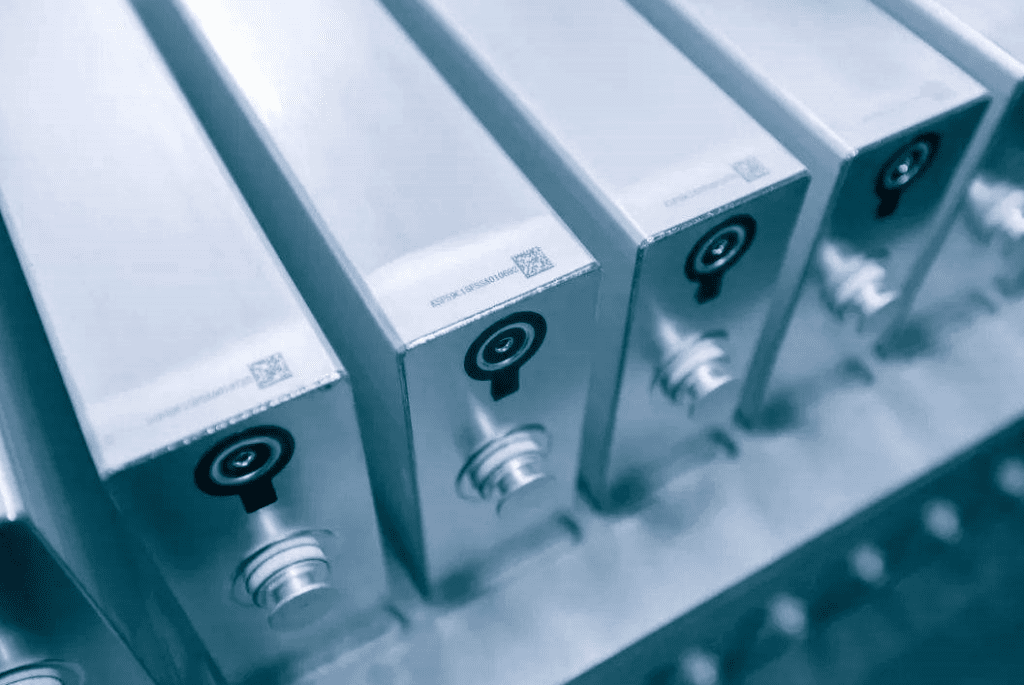Lithium-ion (Li-ion) and lithium iron phosphate (LiFePO4 or LFP) batteries are pivotal in modern energy storage solutions, powering everything from electric vehicles to renewable energy systems. Understanding their differences, advantages, and the role of battery module suppliers is essential for navigating this rapidly evolving market.
What are Lithium-Ion Batteries and How Do They Work?
Lithium-ion batteries are rechargeable energy storage devices that use lithium ions to move between the anode and cathode during charging and discharging cycles. Typically composed of a lithium cobalt oxide cathode and a graphite anode, these batteries are known for their high energy density, lightweight design, and efficiency.Chart: Basic Structure of a Lithium-Ion Battery
| Component | Description |
|---|---|
| Anode | Graphite or other carbon-based materials |
| Cathode | Lithium cobalt oxide or other lithium compounds |
| Electrolyte | Liquid electrolyte facilitating ion movement |
| Separator | Prevents short circuits while allowing ion flow |
How Do LiFePO4 Batteries Compare to Traditional Lithium-Ion Technologies?
LiFePO4 batteries differ from traditional lithium-ion batteries primarily in their cathode material, which uses lithium iron phosphate instead of lithium cobalt oxide. This change offers various benefits, including improved thermal stability and safety.Comparison of LiFePO4 vs. Lithium-Ion Batteries
| Feature | Lithium-Ion (LiCoO2) | LiFePO4 (LFP) |
|---|---|---|
| Energy Density (Wh/kg) | 150-250 | 90-160 |
| Safety | Moderate risk | High safety |
| Cycle Life | 500-1500 cycles | 2000-5000 cycles |
| Cost | Higher | Lower |
What Advantages Do LiFePO4 Batteries Offer for Various Applications?
LiFePO4 batteries present several advantages:
- Safety: They have a lower risk of thermal runaway compared to traditional lithium-ion batteries.
- Longer Cycle Life: With a lifespan that can exceed 2000 cycles, they are ideal for applications requiring durability.
- Cost-Effectiveness: The materials used in LFP batteries are generally less expensive than those in traditional lithium-ion batteries.
Chart: Advantages of LiFePO4 Batteries
| Advantage | Description |
|---|---|
| Safety | Lower risk of overheating and fires |
| Longevity | Longer lifespan reduces replacement costs |
| Cost | More affordable materials lead to lower prices |
Why Are Battery Module Suppliers Crucial for the Energy Storage Industry?
Battery module suppliers play a vital role in the energy storage ecosystem by:
- Providing Custom Solutions: They offer tailored battery modules that meet specific requirements for various applications, including electric vehicles and renewable energy systems.
- Ensuring Quality and Reliability: Suppliers maintain high standards in manufacturing to ensure battery performance and safety.
- Facilitating Innovation: By investing in research and development, battery module suppliers drive advancements in battery technology.
What Challenges Must Battery Module Suppliers Overcome in the Current Market?
Battery module suppliers face several challenges:
- Supply Chain Disruptions: Fluctuations in raw material availability can impact production schedules.
- Technological Advancements: Keeping pace with rapid technological changes requires continuous investment in R&D.
- Competition: The growing number of players in the battery market increases competition, putting pressure on pricing and innovation.
How Is the Market for Lithium-Ion and LiFePO4 Batteries Changing?
The market for lithium-ion and LiFePO4 batteries is evolving due to:
- Increased Demand for Electric Vehicles: As EV adoption rises, so does the need for efficient battery technologies.
- Shift Towards Sustainability: Growing environmental concerns are driving interest in safer and more sustainable battery solutions like LiFePO4.
- Technological Innovations: Continuous improvements in battery chemistry and design are enhancing performance metrics across both types of batteries.
Industrial News
Recent developments indicate a significant shift towards lithium iron phosphate (LiFePO4) batteries, especially among electric vehicle manufacturers like Tesla and BYD, which have increased their market share significantly. Additionally, major suppliers like CATL are expanding their production capabilities to meet rising demand while focusing on sustainability initiatives to enhance their product offerings.
Redway Expert Insights
“The transition from traditional lithium-ion batteries to alternatives like LiFePO4 represents a crucial step towards safer, more efficient energy storage solutions,” states Dr. Emily Redway, an expert in battery technologies. “As manufacturers focus on sustainability and performance, we can expect significant advancements that will reshape the energy landscape.”
FAQ Section
Q1: What is a lithium-ion battery?
A1: A lithium-ion battery is a rechargeable energy storage device that uses lithium ions to move between electrodes during charging and discharging.Q2: How do LiFePO4 batteries differ from traditional lithium-ion batteries?
A2: LiFePO4 batteries use lithium iron phosphate as the cathode material, offering improved safety, longer cycle life, and lower costs.Q3: What advantages do LiFePO4 batteries provide?
A3: Advantages include enhanced safety, longer lifespan, cost-effectiveness, and reduced environmental impact.Q4: Why are battery module suppliers important?
A4: They provide custom solutions, ensure quality manufacturing, and facilitate innovation within the energy storage industry.Q5: What challenges do battery module suppliers face?
A5: Challenges include supply chain disruptions, rapid technological advancements, and increased competition in the market.




